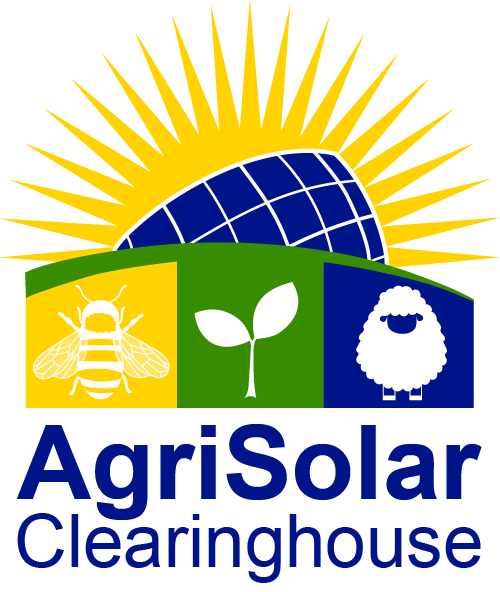staciepeterson
Moderator
With major support from Toyota Motor North America, the National Environmental Education Foundation (NEEF) is excited to announce $200,000 in grant funding to support shovel-ready pollinator habitat enhancement projects on America’s public lands. More here: https://www.neefusa.org/resource/2023-biodiversity-conservation-grant-enhancing-pollinator-habitats
Habitat enhancement projects should directly support the creation, restoration, remediation, improvement, and/or protection of habitats for important pollinator species such as butterflies, bees, bats, and more. The project should impact pollinators on at least 150 acres of public land. Additionally, projects should incorporate community outreach and engagement activities designed to educate and empower the public to help enhance pollinator habitats.
Acres Enhanced:
The timeline is as follows:
Habitat enhancement projects should directly support the creation, restoration, remediation, improvement, and/or protection of habitats for important pollinator species such as butterflies, bees, bats, and more. The project should impact pollinators on at least 150 acres of public land. Additionally, projects should incorporate community outreach and engagement activities designed to educate and empower the public to help enhance pollinator habitats.
FUNDING PRIORITIES
- Habitat Enhancement Projects: Projects must implement on-the-ground activities designed to increase the quality, quantity, and connectivity of pollinator habitats. Applicants must define a step-by-step plan including site preparation, size of the project area, and description of target pollinator. If preparing a proposal that includes collecting seeds or cultivating native seedlings, applicants should describe the intended use of the seed or seedlings. The project should be shovel-ready, meaning ready to implement the proposed project within 3 months of the award date.
- Community Engagement: Projects must provide opportunities for public engagement through education or volunteer focused events. Projects should aim to collaborate with a diverse group of community partners to achieve engagement and educational outcomes. Grantees will be required to report on the number of events implemented and the number of participants engaged during the grant period.
PROJECT METRICS
To better gauge progress on individual grants and to ensure greater consistency of project data provided by multiple grantees, NEEF has provided a list of recommended project metrics. All applicants must commit to collecting and reporting on key project metrics listed below.Acres Enhanced:
- Number of Acres (minimum 150 acres)
- Number of Acres of Monarch Habitat
- Number of Individual Project Work Sites
- Number of Pollinator Species Promoted
- Number of Imperiled Species Protected
- Number of Native Plant Species Installed
- Number of Milkweed Plants Installed
- Number of Individuals Engaged in Volunteer Activities
- Number of Individuals Engaged in Outreach Activities
- Number of Landowners Engaged
- Number of Toyota Employees Engaged
- Number of Individuals Engaged from Underserved Communities
APPLICATION PROCESS AND TIMELINE
The grant competition will be a two-part process. Those interested in applying must first submit a Letter of Intent (LOI). NEEF will then select and invite LOI finalists to submit a full application for review. From that pool, NEEF will then choose its grantees.The timeline is as follows:
- LOI opens: February 1, 2023
- LOI deadline: March 10, 2023
- Finalists invited to submit Application: April 10, 2023
- Application due: May 10, 2023
- Grants awarded: June 9, 2023
- Grant period: July 1, 2023 - June 30, 2024
- Reporting deadlines:
- December 31, 2023
- July 31, 2024
ELIGIBILITY
- Open to non-profit 501(c)(3) organizations, state or federal government agencies, federally recognized tribes and local governments, and educational institutions. *
- Projects must be on public lands defined as any government- or nonprofit-owned land that is accessible to the public for recreational use.
- Private for-profit firms and individuals are not eligible to apply.
- Grant funding may not be used to support political advocacy, fundraising, lobbying, litigation, terrorist activities, or Foreign Corrupt Practices Act violations.
- Must meet the funding criteria (below).
LOI CRITERIA
- Describe how the habitat enhancement project will benefit pollinator species. Proposed projects must be technically sound and apply the best available science and accepted best management practices for enhancement of pollinator habitats and species specific to their ecological region.
- Give detail on the number of acres impacted by the project including any invasive species removal, planting area, areas improved for educational purposes etc.
- Total request amount: Applicants can request a minimum of $50,000 and a maximum of $100,000 to be spent over a one-year period.
- Describe the key project partners and community-based groups (e.g., federally recognized tribes, school districts, nonprofits).
APPLICATION CRITERIA
Applicants invited to submit a full application will build on LOIs. Applications will be evaluated based on the extent to which they meet the following criteria:- Describe how the habitat enhancement project will benefit pollinator species. Include a step-by-step plan for establishing, enhancing, and/or preserving habitat acres.
- Describe how funds will be used to meet project goals.
- Describe how the applicant will provide educational offerings that link the on-the-ground conservation work taking place on public lands to the surrounding community (e.g., educating property-owners about the impact of invasive species and encouraging removal of targeted species on private property surrounding the project site). In short, address how education will be used to help participants learn what practices they can apply to support the continued conservation efforts. Include how these efforts increase people’s understanding of their relationship with the public land/space and the environment as a whole.
- Provide a detailed timeline of when programming/activities will take place during the grant year. The timeline should include community engagement events.
- Describe the project team, including partnerships with other organizations responsible for implementing grant activities. Detail the roles and involvement of each organization cited in the LOI.
- Provide Partner Letters of Support from those listed under the project team section of the LOI detailing who will be responsible for implementing grant activities.
- Provide required financials which include:
- Conflict of interest policy
- A list of Board of Directors
- Annual organizational budget
- Audit for prior fiscal year, or if an audit is not available, a balance sheet and Profit and Loss Statement for prior fiscal year
